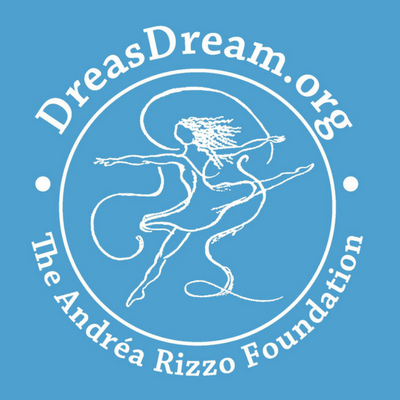
By Jennifer Whitley
The Dréa’s Dream pediatric dance therapy session described in this story is funded by The Andréa Rizzo Foundation.
Here is a great Dréa’s Dream Story about the importance of moving and engaging in exercises throughout treatments.
The mind/body connection is an important piece to understand when dealing with difficulties of treatments and illness. Families should check into what kind of complementary therapies their hospital offers and not to be shy or resistant to asking for these. These services can make a difference in the child’s treatments. This is where they may find acupuncture, dance and/or music therapy, meditation, yoga, and massage therapy. I recommend to take advantage of any and all services: make a schedule, create a plan.
If the hospital doesn’t offer any complementary therapies, find what works best with the patient/child and incorporate it into their treatment schedule from outside sources.
Find a nutritionist with experience in counseling those that have cancer – it does matter what we put into our bodies and especially when going through treatments.
It’s important to allow the child to have space and an opportunity to process openly about what they are going through rather than ignore how it is making them feel.
Dance/movement therapy is a wonderful vehicle into processing these difficult feelings as it provides access and understanding of the body, mind, and emotions. It can also foster and provide a way to maintain family attachments through family sessions. Parents often want to take away all the pain or be the target for the child so they can minimize the child’s pain, but this only complicates the situation. Finding ways to have the child take out their anger other than on the parent can be healthy and important for the ongoing family dynamic and attachment of parent/caregiver and child.
Additionally, it is important for the parents to begin understanding how the patient/child copes with pain and providing them opportunities to learn new ways (ie. mind/body, breathing techniques, meditation, etc.). Again, dance/movement therapy can provide a wonderful mindfulness practice for children to learn about how to cope with pain, anxiety, stress, fear, anger, and fatigue.
Equally as important, parents may want to consider making sure they themselves are being taken care of by doing small things like, taking breaks, finding a therapist to have a place to talk about their own feelings, and doing things that can help them relax, like a massage or exercise classes. Parents must take care of their Mind, Body, and Feelings, too, or they sometimes cannot be there wholly for the child.
For more stories like these, go to Dréa’s Dream Stories
To help us provide dance/movement therapy to more children,
PRIVACY
Contact Information
- THE ANDRÉA RIZZO FOUNDATION
- Address:10 East Beach Road Charlestown, RI 02813
- Phone:401-952-2423
- Email:dreasdream@aol.com
- Website:dreasdream.org
